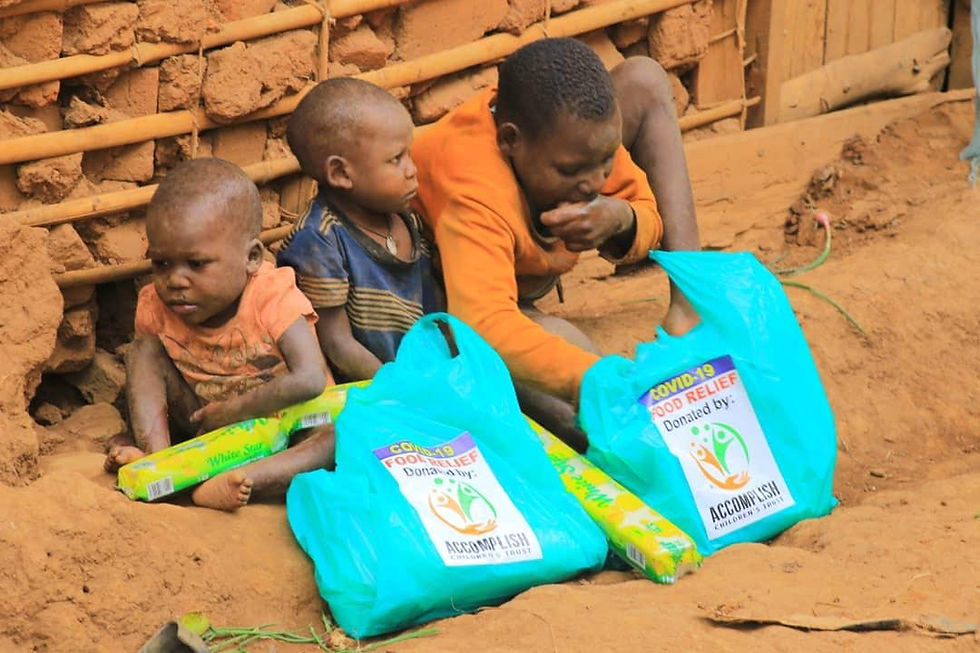Kasese's malnutrition crisis
- Dec 2, 2021
- 2 min read
Malnutrition is becoming an increasing issue in Kasese district in Uganda, where several of Accomplish's projects are based. The prevalence of malnutrition amongst children in Kasese district has increased to 40% in the past couple of years, due to COVID-19. Successive lockdowns and travel restrictions have led to widespread food shortages.
The Kyaninga Child Development Centre (KCDC) tells us that many of the families with whom they work in Kasese now have food insecurities. Prior to COVID-19, KCDC was able to address most cases of malnutrition they encountered. At that time, cases were usually limited to individual disabled children rather than whole families. KCDC tackled malnutrition by improving children's communication through speech and language therapy, or by teaching families not to neglect their disabled children. However, over the past nine months, KCDC has seen a significant increase in the number of people suffering from malnutrition, with whole families underfed.
To make matters worse, Kasese was hit by severe flooding last year, washing away homes, roads, bridges, and land upon which subsistence farmers depend. The Rwenzori Association of Parents of Children with Disabilities (RAPCD) was able to provide emergency items such as mattresses to people who had lost their homes and possessions in the flooding, thanks to a grant from Medical Missionary News.
Several of our partner organisations have responded to the crisis by distributing emergency food packages, funded by Accomplish. The Rwenzori Special Needs Foundation (RSNF) provided 50 families with food during last year's lockdown and its farming programme gave food to another 30 families. This year, its relief work has expanded. Last month alone, RSNF distributed 150 food hampers, financed by Accomplish’s emergency appeal.

KCDC distributed 424 'buckets of love' last year to families, thanks to support from Accomplish; the buckets contained food, information, and other emergency items. This year again, KCDC has been providing nutritional support to families alongside home-based therapy and education.
There are multiple causes of malnutrition, especially for disabled children, including a lack of understanding about how to create a balanced diet. Often, children are given a lot of carbohydrates to satisfy short-term hunger, but this can lead to malnutrition in the longer term. Furthermore, some families put all their children’s food into a single dish, which they leave in the middle of the floor. The protein (usually beans or peanut sauce) tends to be taken first by the biggest or fittest children. Younger children and disabled children are often left with just starchy foods.
In response to the needs seen by KCDC, Accomplish is providing a grant to enable a nutritional nurse to work in Kasese district. We are grateful for your support in enabling this issue to be addressed.






Comments